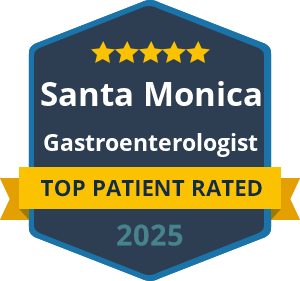
Heartburn, or gastroesophageal reflux disease (GERD), is a common digestive issue that affects millions of people worldwide. Characterized by a burning sensation in the chest, heartburn occurs when stomach acid backs up into the esophagus. While many people experience heartburn occasionally, chronic heartburn may point to more serious health issues.
One crucial concern that often arises is the potential link between chronic heartburn and cancer, particularly esophageal cancer. Dr. David P. Yamini, a dedicated gastroenterologist in Santa Monica, can help.
Understanding Heartburn and Its Risks
Heartburn is commonly experienced as a burning sensation behind the breastbone, often accompanied by a sour or bitter taste in the throat. It can occur after eating, when lying down or during physical activity, and is often triggered by certain foods, beverages or lifestyle choices. While occasional heartburn is generally not a cause for alarm, recurrent episodes can signify a more serious condition known as GERD.
Chronic GERD can lead to complications over time. One of the most significant concerns is Barrett’s esophagus, a condition in which the cells lining the esophagus change due to prolonged exposure to stomach acid. This condition is considered a precancerous state and can increase the risk of developing esophageal adenocarcinoma, a type of cancer.
Although not everyone with chronic heartburn will develop Barrett’s esophagus or esophageal cancer, the risk does increase with the severity and duration of GERD symptoms.
The Link Between Heartburn and Esophageal Cancer
Statistics indicate that individuals with GERD have a higher likelihood of developing esophageal cancer. In fact, the Memorial Sloan Kettering Cancer Center states that “Adenocarcinoma of the esophagus, the most common form of esophageal cancer, is one of the fastest-growing cancers.”
This cancer can often be asymptomatic in its early stages, making awareness of the symptoms crucial. Warning signs can include:
- Difficulty swallowing
- Unexplained weight loss
- Chronic cough or hoarseness
- Vomiting blood or passing black stools
If you experience any of these symptoms alongside chronic heartburn, it’s important to consult with a healthcare professional promptly.
How Dr. David P. Yamini Can Help
Dr. David P. Yamini is a prominent gastroenterologist specializing in diagnosing and treating gastrointestinal disorders, including heartburn and its complications. By conducting thorough evaluations that may include upper endoscopies and diagnostic tests, he can assess the severity of your heartburn, identify any underlying conditions and propose appropriate treatment options.
Treatment strategies may involve:
- Lifestyle Modifications: Simple changes in diet and habits can significantly reduce heartburn incidents. Dr. Yamini often recommends avoiding trigger foods, eating smaller meals, not lying down after eating and maintaining a healthy weight.
- Medications: Over-the-counter antacids, H2 blockers and proton pump inhibitors (PPIs) can help manage symptoms and reduce gastric acid production.
- Surgical Options: In severe cases, surgical interventions like fundoplication may be considered to prevent acid reflux.
By focusing on personalized treatment plans, Dr. Yamini emphasizes the importance of addressing GERD before it can lead to more serious health conditions, including cancer.
Heartburn FAQs
What causes heartburn?
Heartburn is usually caused by the relaxation of the lower esophageal sphincter (LES), allowing stomach acid to backflow into the esophagus. Factors contributing to this include obesity, pregnancy, smoking, certain foods and beverages like alcohol and caffeine.
How do I know when to see a doctor for heartburn?
You should consult a healthcare provider if you experience heartburn more than twice a week, have severe symptoms or notice any concerning signs, such as difficulty swallowing or weight loss.
Can I prevent heartburn?
Yes! Preventive measures include maintaining a healthy diet, avoiding known trigger foods, eating smaller meals and losing weight if overweight. Additionally, elevating the head while sleeping can help reduce nighttime symptoms.
Are there any long-term effects of untreated heartburn?
Chronic, untreated heartburn can lead to complications such as esophagitis (inflammation of the esophagus), Barrett’s esophagus and an increased risk of esophageal cancer.
Can heartburn be a symptom of something more serious?
Yes, while heartburn is often benign, persistent symptoms should not be ignored. They may signify underlying conditions, including GERD or even esophageal cancer in some cases. It is essential to undergo appropriate medical evaluations.
Santa Monica Gastroenterologist for Heartburn/GERD/Acid Reflux
Understanding the risks of chronic heartburn is vital for early detection and treatment. If you often experience heartburn or related symptoms, contact Dr. David P. Yamini. He specializes in all areas of gastroenterology, holding double board certification in Internal Medicine and Gastroenterology. Besides his certifications, he has multiple hospital privileges, and his patients value his excellent bedside manner.
By working together, you can create a tailored plan to manage your symptoms effectively and reduce the risk of serious complications, including cancer. Your health is paramount, and proactive care is the best approach to ensuring long-term well-being.
Posted on behalf of




